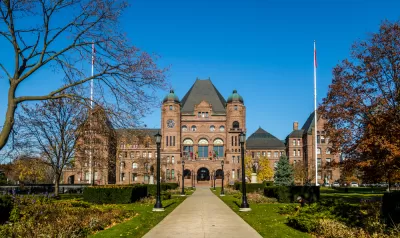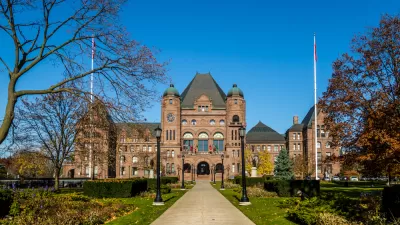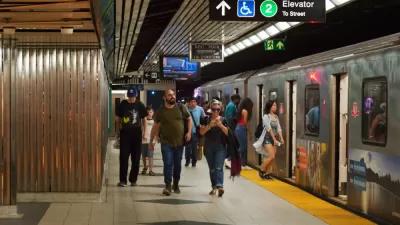The fallout from Ontario Premier Doug Ford's decision to pull the province from the Western Climate Initiative, a cap-and-trade program linked with Quebec and California.

Since his election in June, Ontario Premier Doug Ford has promised to end the province's participation in a cap-and-trade agreement with Quebec and California called the Western Climate Initiative.
The provincial government's financial accountability officer responded to that proposal recently with a study that estimates the cost of ending the deal to reach $3 billion over four years, according to an article by Robert Benzie.
"The province’s budget balance worsens because the loss of cap-and-trade revenue from ending the auction of emission allowances is greater than the savings achieved from cancelling cap-and-trade-related spending programs," according to a statement by Ontario Financial Accountability Officer Peter Weltman.
Ford announced in July that the government would rescind the 4.3 cents a litre addition to gas prices included in Ontario's commitment to the cap-and-trade scheme. California and Quebec closed the market to Ontario in June. More recently, Ford promised 'an orderly wind-down of all programs funded out of cap-and-trade carbon tax revenues,' after describing cap-and-trade programs as a "slush fund" and a "cash grab."
The end of the gas surcharge will also mean the end to the "$1.9 billion in annual programs bankrolled by cap-and-trade revenues," reports Benzie, "including subsidies for retrofitting windows and energy-efficient insulation to help consumers reduce hydro and natural gas bills."
Moreover, the province had been exempted from Canadian Prime Minister Justin Trudeau's federal cap-and-trade program. Now Ontario will be forced into that program, unless it wins an expected lawsuit in court.
FULL STORY: Premier Doug Ford’s cap-and-trade move will cost treasury $3B over four years

Planetizen Federal Action Tracker
A weekly monitor of how Trump’s orders and actions are impacting planners and planning in America.

Congressman Proposes Bill to Rename DC Metro “Trump Train”
The Make Autorail Great Again Act would withhold federal funding to the system until the Washington Metropolitan Area Transit Authority (WMATA), rebrands as the Washington Metropolitan Authority for Greater Access (WMAGA).

The Simple Legislative Tool Transforming Vacant Downtowns
In California, Michigan and Georgia, an easy win is bringing dollars — and delight — back to city centers.

The States Losing Rural Delivery Rooms at an Alarming Pace
In some states, as few as 9% of rural hospitals still deliver babies. As a result, rising pre-term births, no adequate pre-term care and harrowing close calls are a growing reality.

The Small South Asian Republic Going all in on EVs
Thanks to one simple policy change less than five years ago, 65% of new cars in this Himalayan country are now electric.

DC Backpedals on Bike Lane Protection, Swaps Barriers for Paint
Citing aesthetic concerns, the city is removing the concrete barriers and flexposts that once separated Arizona Avenue cyclists from motor vehicles.
Urban Design for Planners 1: Software Tools
This six-course series explores essential urban design concepts using open source software and equips planners with the tools they need to participate fully in the urban design process.
Planning for Universal Design
Learn the tools for implementing Universal Design in planning regulations.
Smith Gee Studio
City of Charlotte
City of Camden Redevelopment Agency
City of Astoria
Transportation Research & Education Center (TREC) at Portland State University
US High Speed Rail Association
City of Camden Redevelopment Agency
Municipality of Princeton (NJ)




























